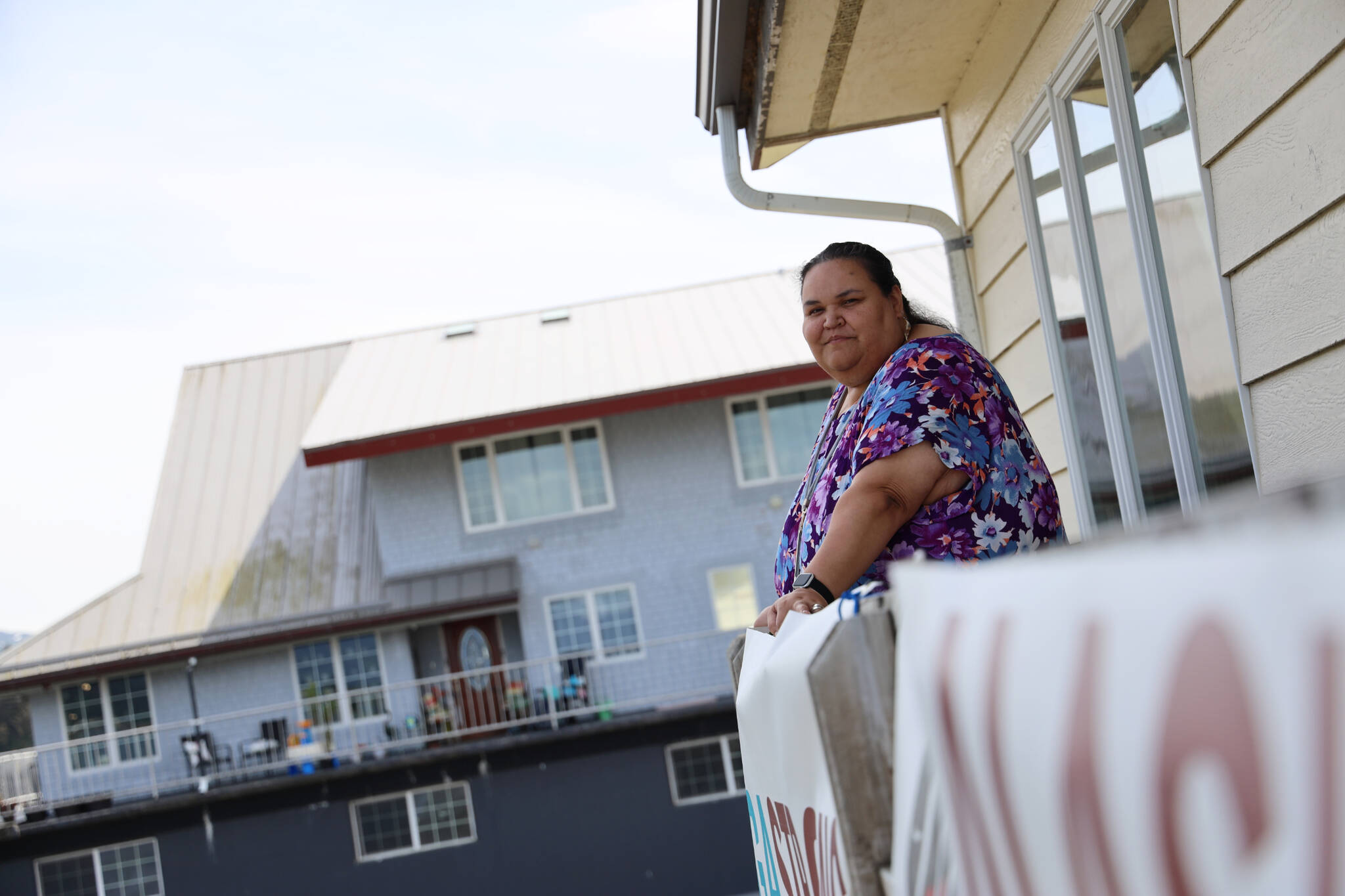While thousands of writers are on strike and 3,000 miles away rallying in front of major Hollywood studios, award-winning Juneau writer Vera Starbard rallies too, displaying a large banner from her Douglas Island home directly facing the Gastineau channel. She hopes that when cruise ships pass by and see the message.
“I think people may not even realize that we have people in the industry right here in Alaska,” she said. “It’s important to know that there are storytellers from Alaska that are contributing in the sort of, quote-unquote, Hollywood industry.”
Starbard is one of the 11,500 writers of the Writer’s Guild of America union who have been on strike since early May in advocacy for increased compensation, stable pay structure and working conditions for writers of film, television and other entertainment forms.
The strike — which is the first Hollywood writers’ strike in 15 years — has put a halt on the production of popular talk shows, movies and television shows across popular streaming platforms and to be released in theaters. It began following fraught contract negotiations with major Hollywood studios. Union officials said the studios are holding an “immovable stance” and “betrayed a commitment to further devaluing the profession of writing.”
Starbard, who is Tlingit and Dena’ina Athabascan, is an Emmy-nominated writer and her work has been featured in popular shows like PBS children’s series “Molly of Denali,” the Disney+ series “SuperKitties” and ABC’s “Alaska Daily,” which was recently canceled after just one season.
Starbard has been writing professionally for over 25 years, bouncing around as a playwright, reporter and now TV writer. It was only in the last year that she said she felt like she had made enough money writing to live comfortably, thanks to the compensation she earned while writing for “Alaska Daily.”
However, her comfort level has changed since it was announced the series was canceled — marking the swift end of a three-year contract — and the writers strike began.
“That’s just how this industry works — you can have a long contract that you’re beholden to, but they’re not beholden to you,” she said. “The strike is about trying to ensure that writers can make an aim for a middle-class living.”
Despite the financial pressure the strike will likely place on her — and the thousands of other writers not receiving a paycheck during the time the strike lasts — Starbard said it’s time for writers to get fair compensation for their work and that’s why she continues to remain vocal on the subject both on social media and via the banner across her balcony.
Currently, Starbard said she has five projects on hold that will remain halted until the strike is resolved. As an Alaska Native woman, Starbard said it’s important to stand up for equity now, in hopes that in the future the fight will help create opportunities for more diversity and inclusion in writers’ rooms. She said currently that’s not the case, and she wants that to change.
A negotiator for WGA told Reuters that the guild’s demands don’t specifically address the issues of diversity, but are intended to protect the economic stability of the industry for future writers.
According to a WGA report, white men continue to make up most of the high-level TV jobs, including 58% of showrunners and 64% of executive producers in 2020.
“What the studios are trying to do is make that harder, it’s going to make it harder to have more diverse rooms — diverse women, queer writers — there haven’t historically been as many of us,” she said. “I think I got a shot and television because of the door opening just a little bit wider for me as a Native television writer, Native playwright, and what the studios are trying to do just shuts that door again.”
Starbard said she thinks the strike could last for months, but she isn’t sure. The last WGA strike lasted about three months, from November 2007 to February 2008, and caused a slew of shortened seasons during that time.
Fellow Emmy-nominated Juneau residents like playwright Frank Henry Kaash Katasse and University of Alaska Southeast professor X’unei Lance Twitchell say they support Starbard and the other writers on strike but are not a part of the union themselves.
• Contact reporter Clarise Larson at clarise.larson@juneauempire.com or (651)-528-1807.

